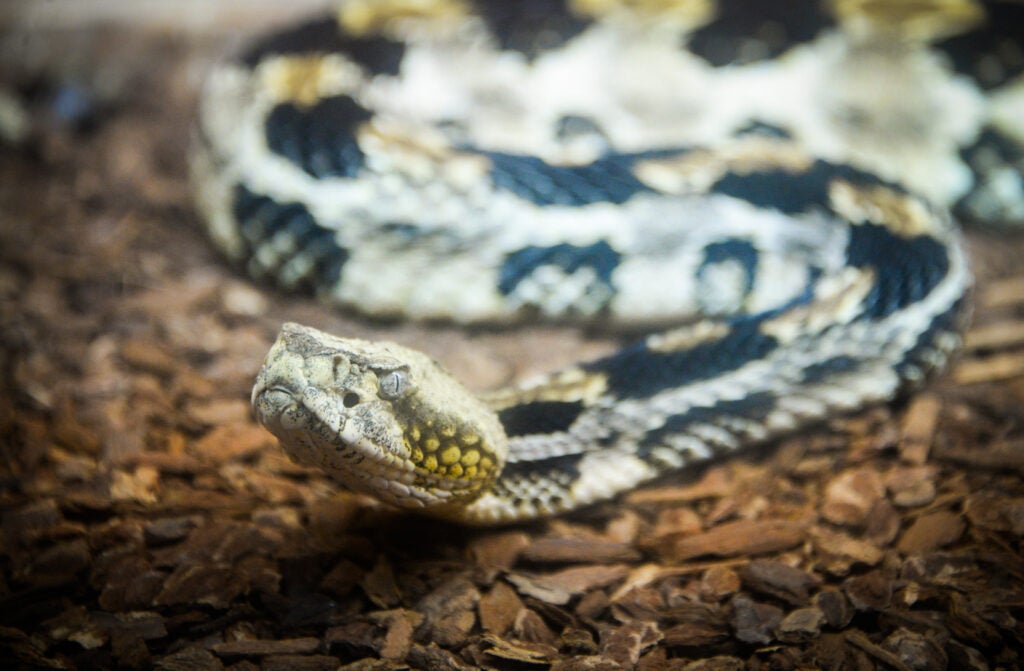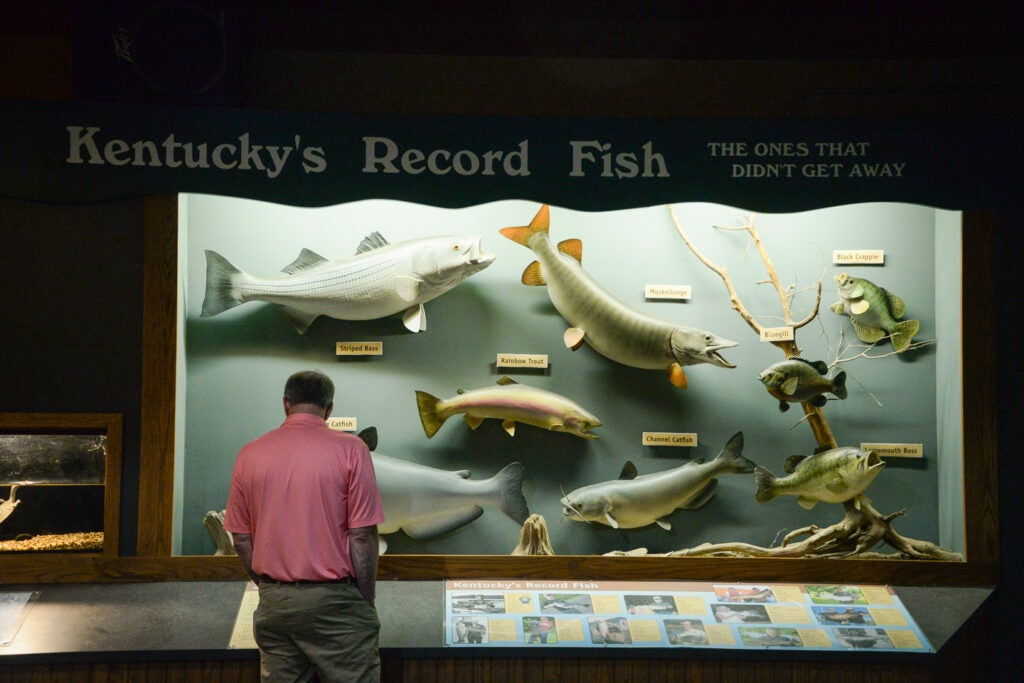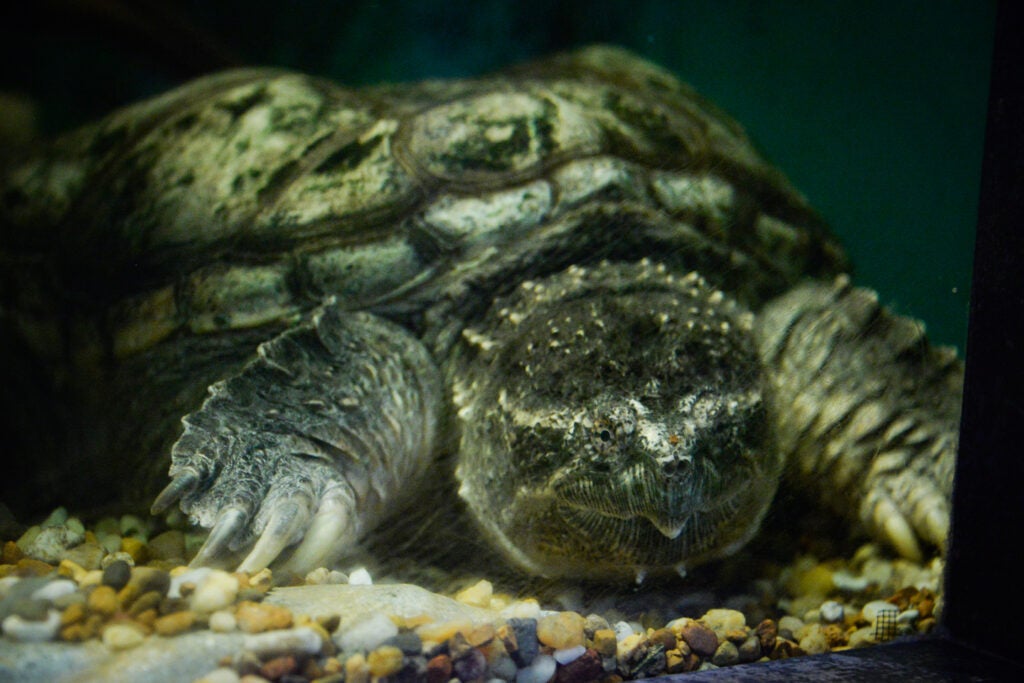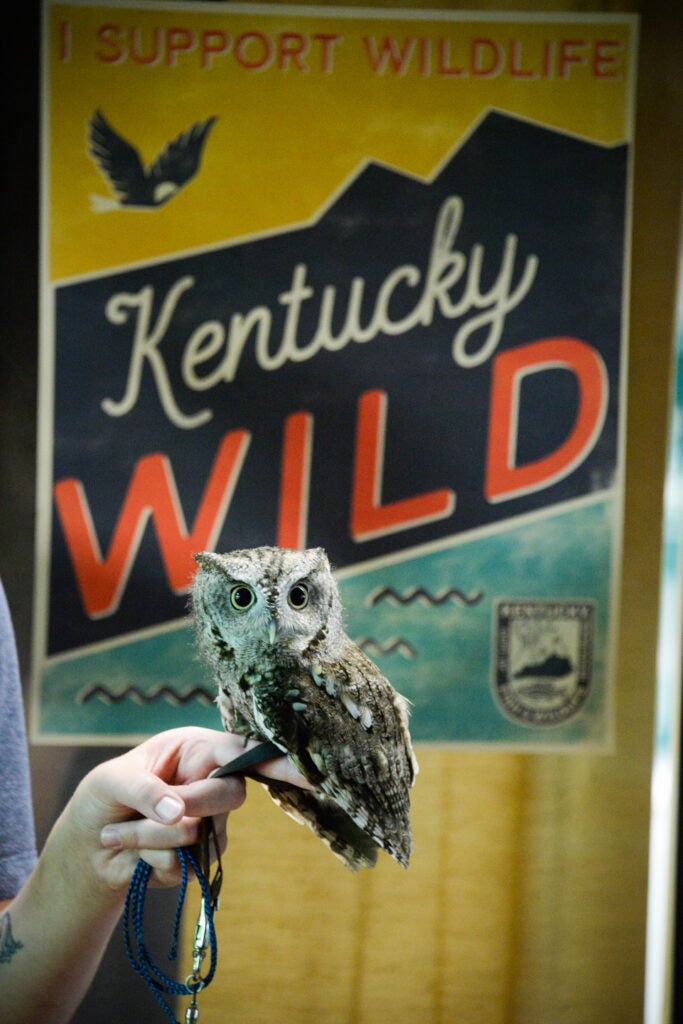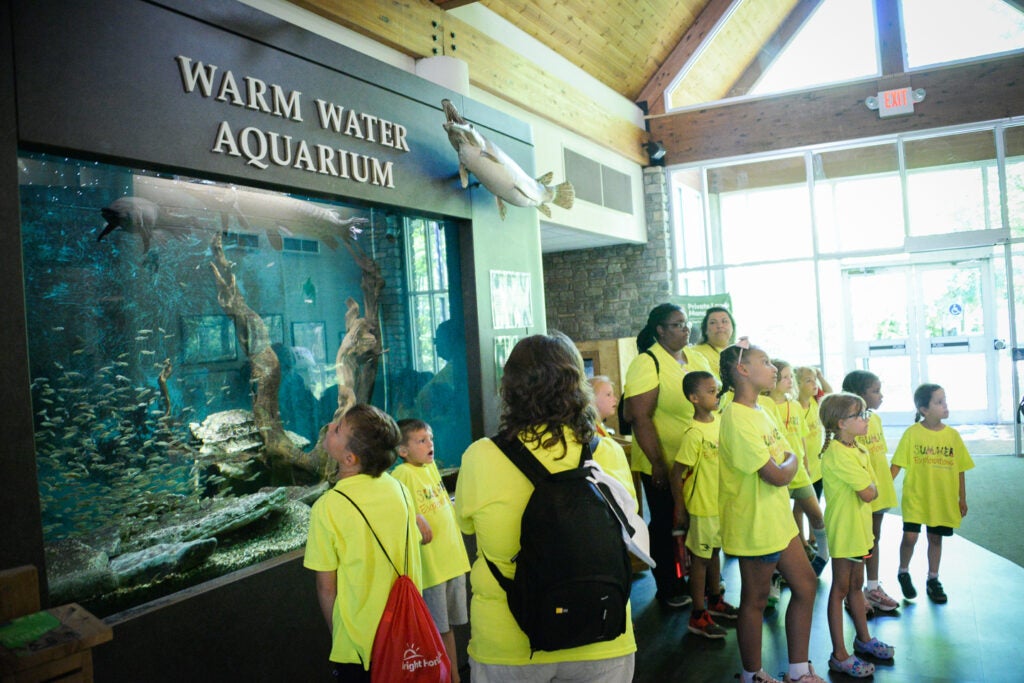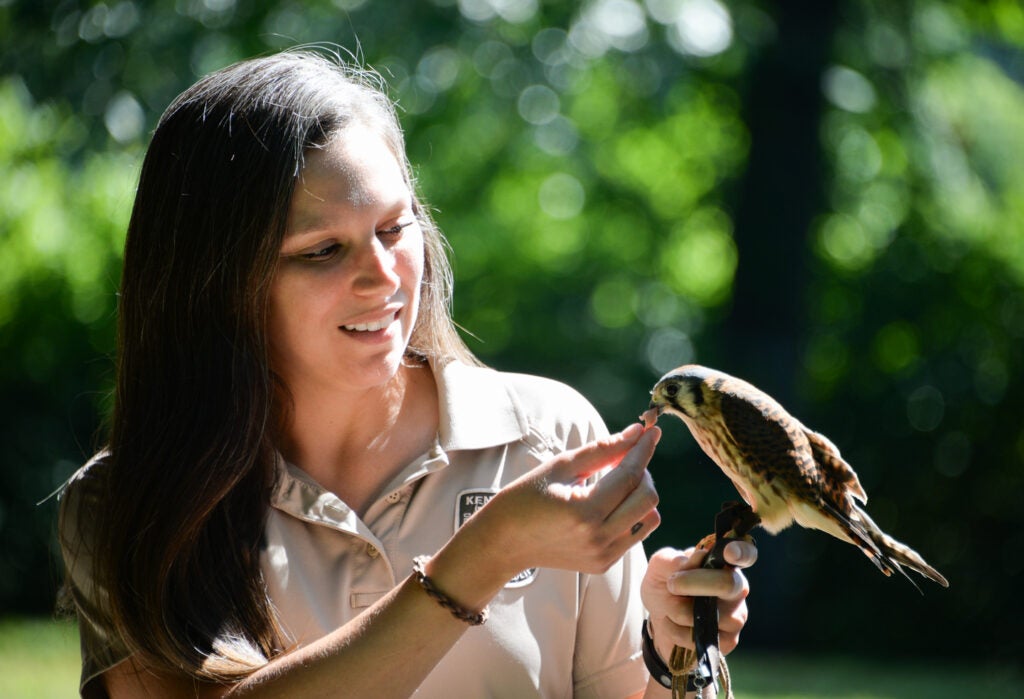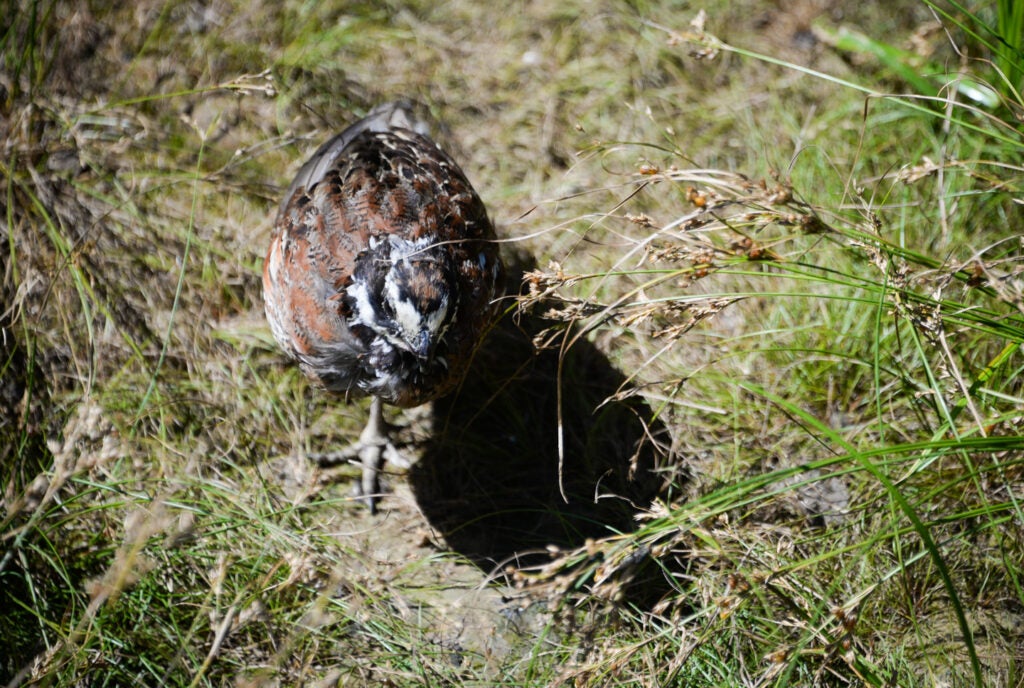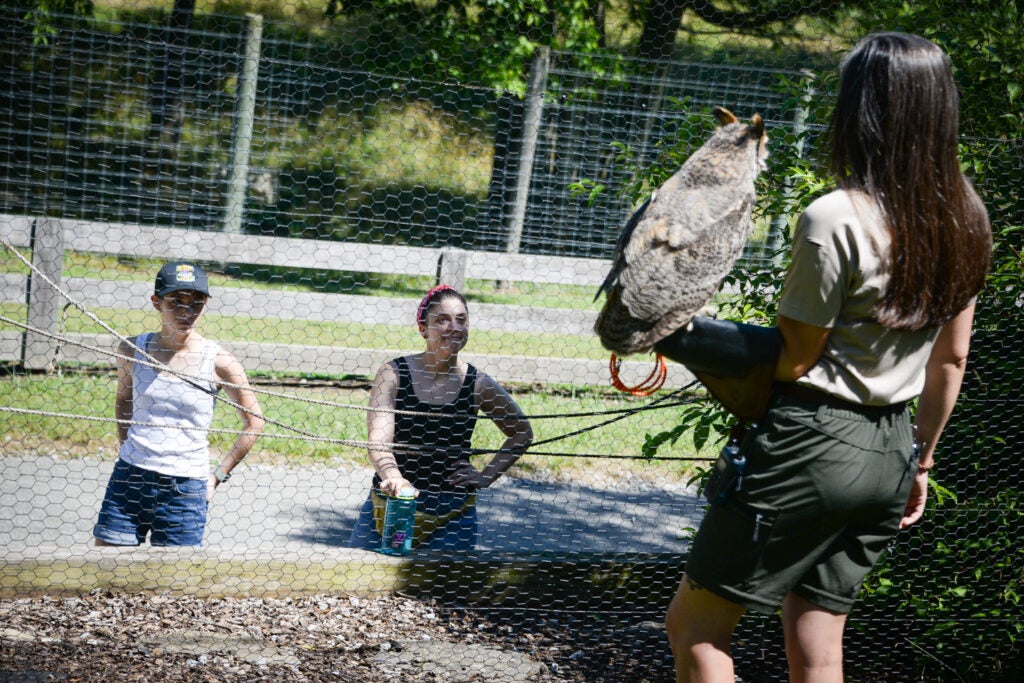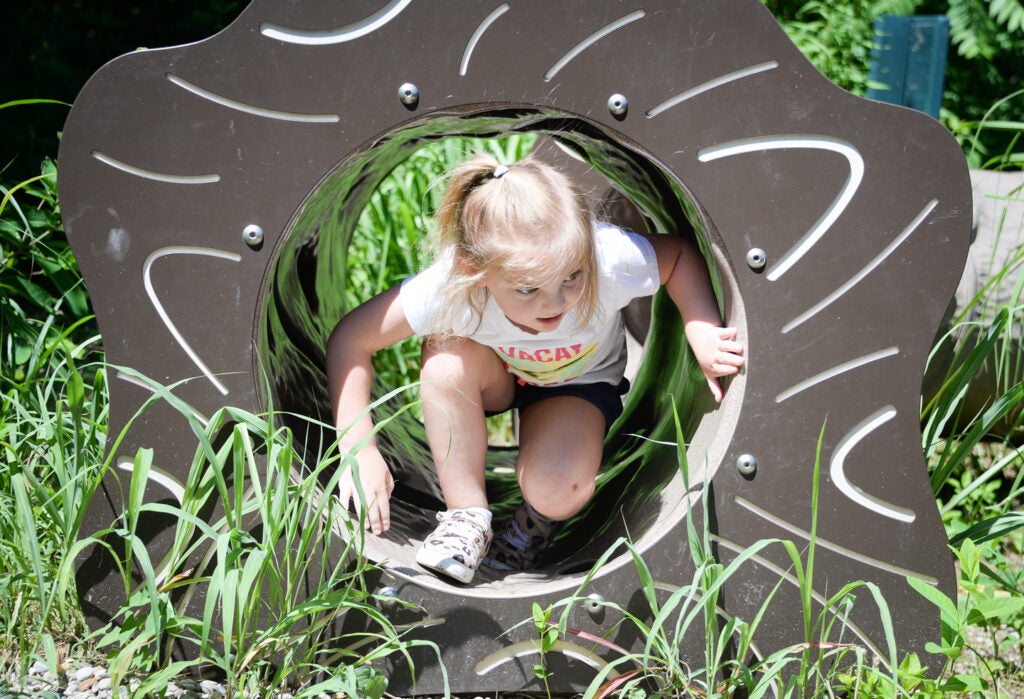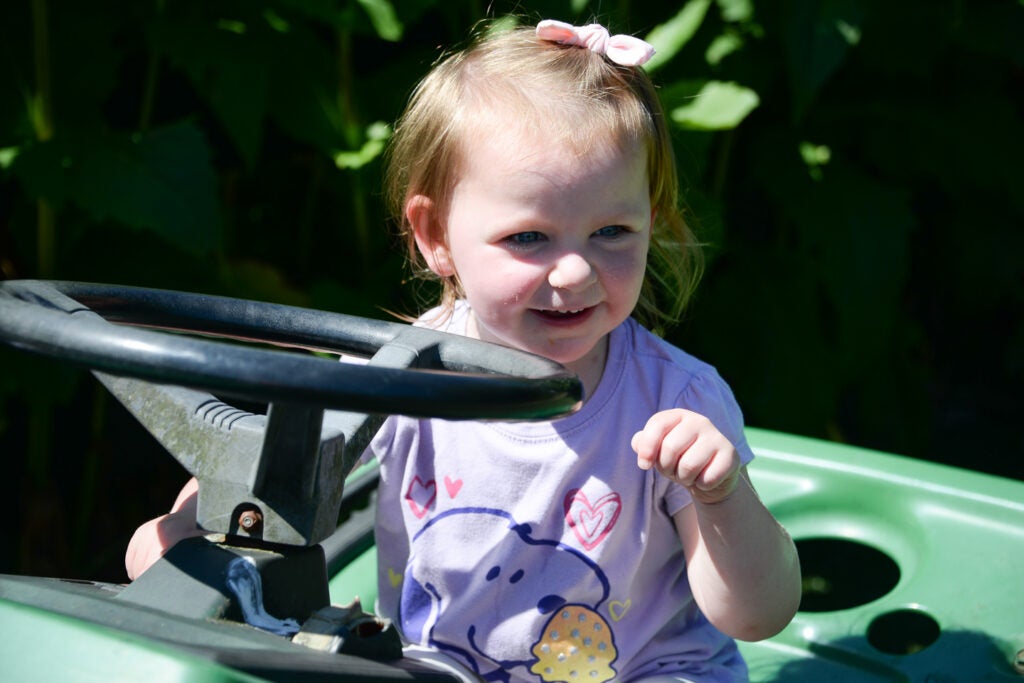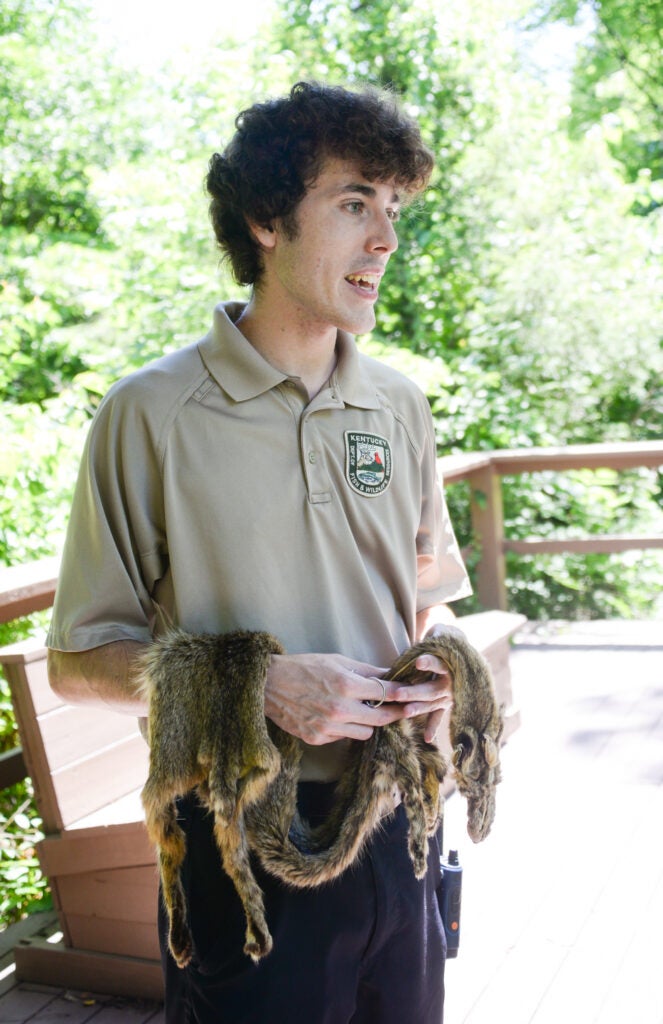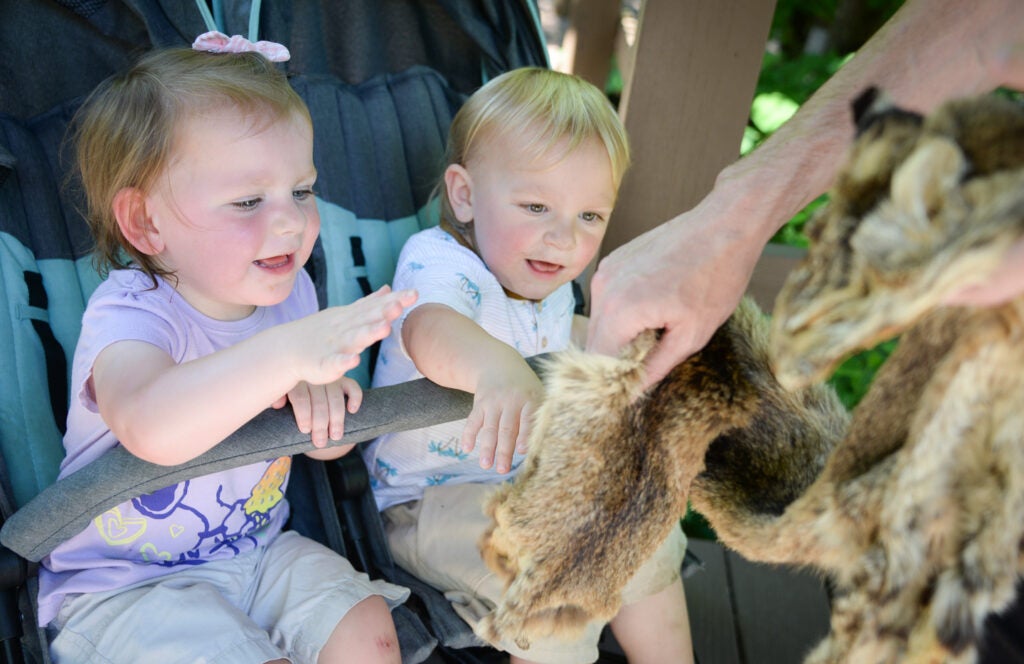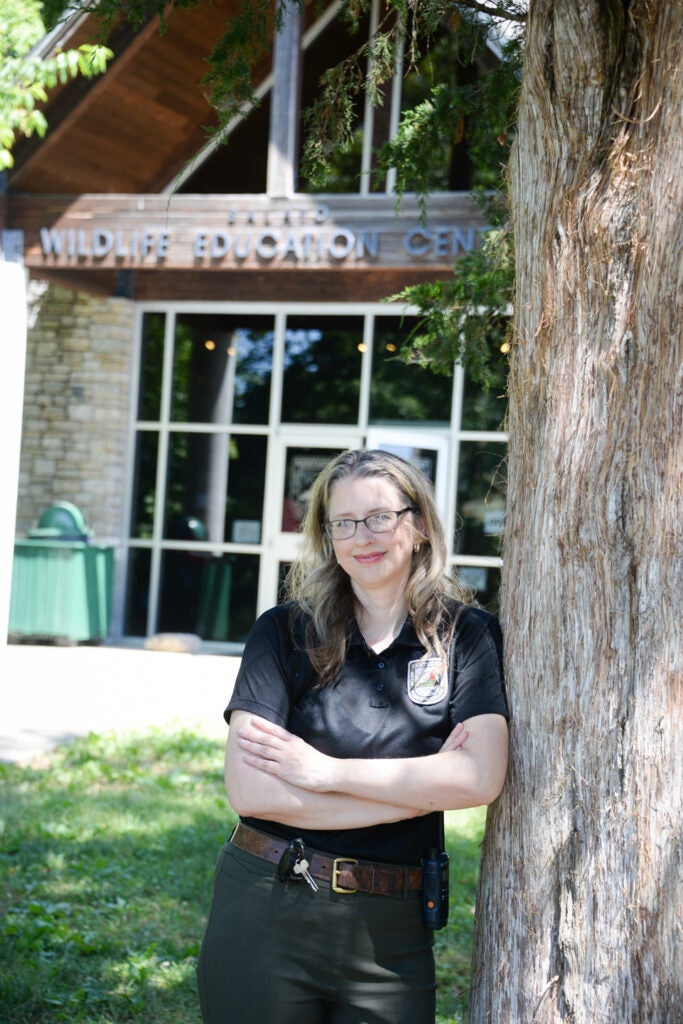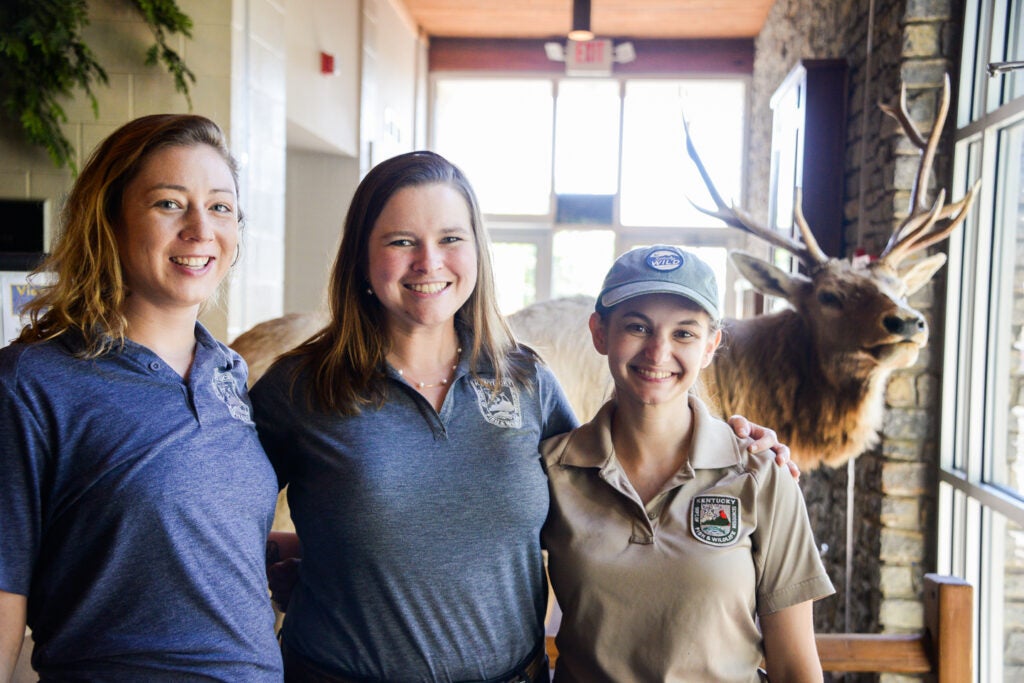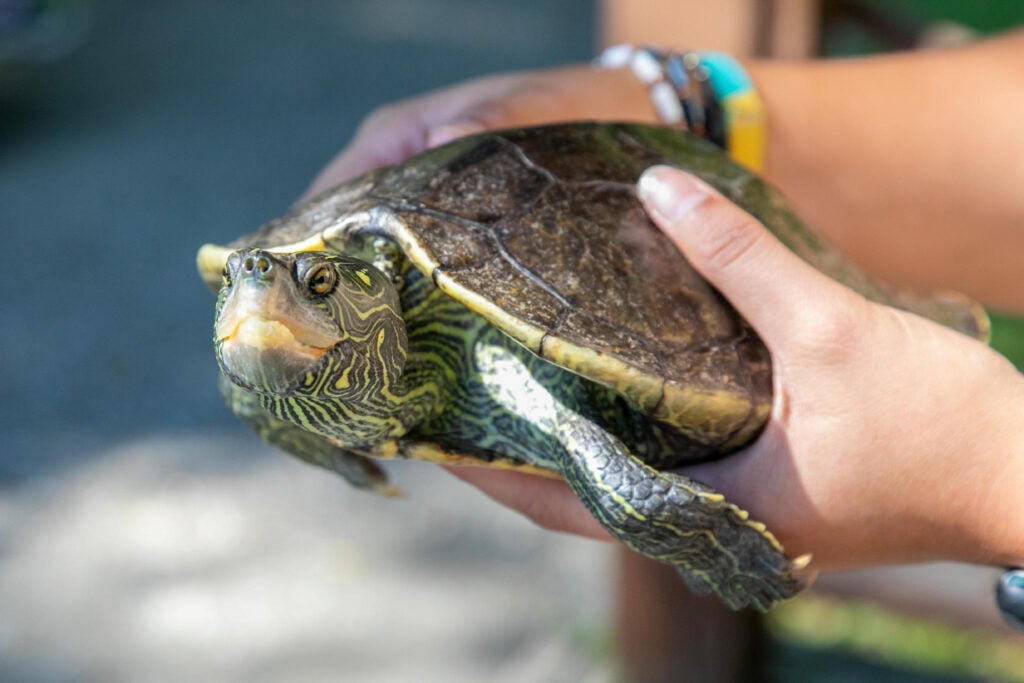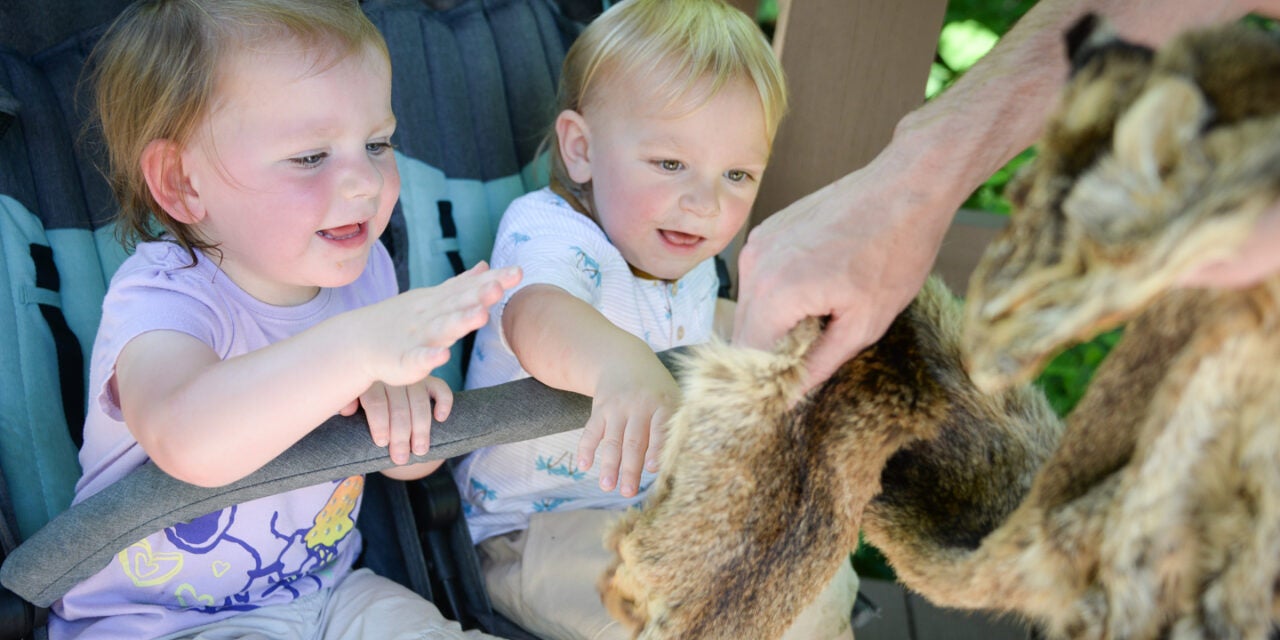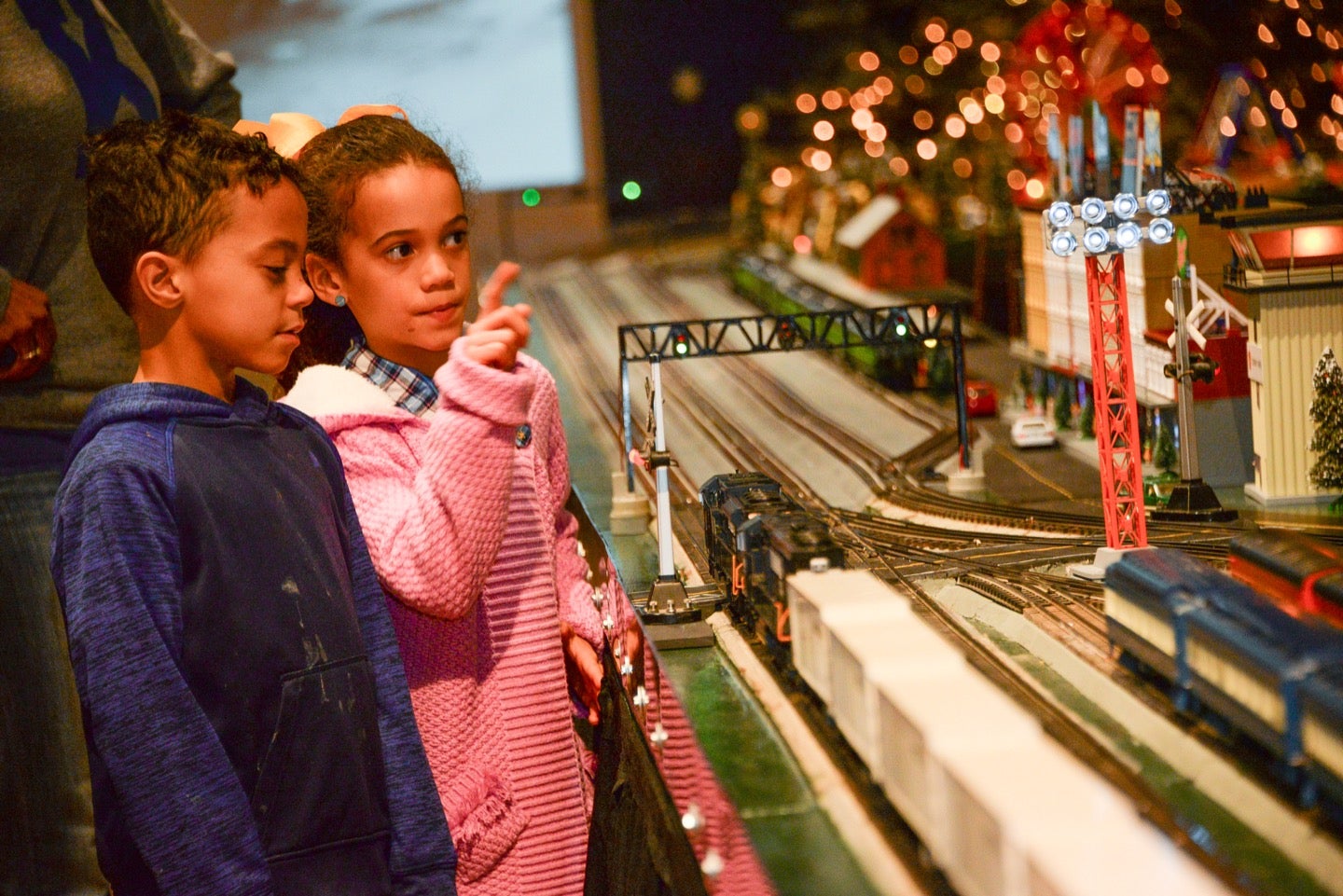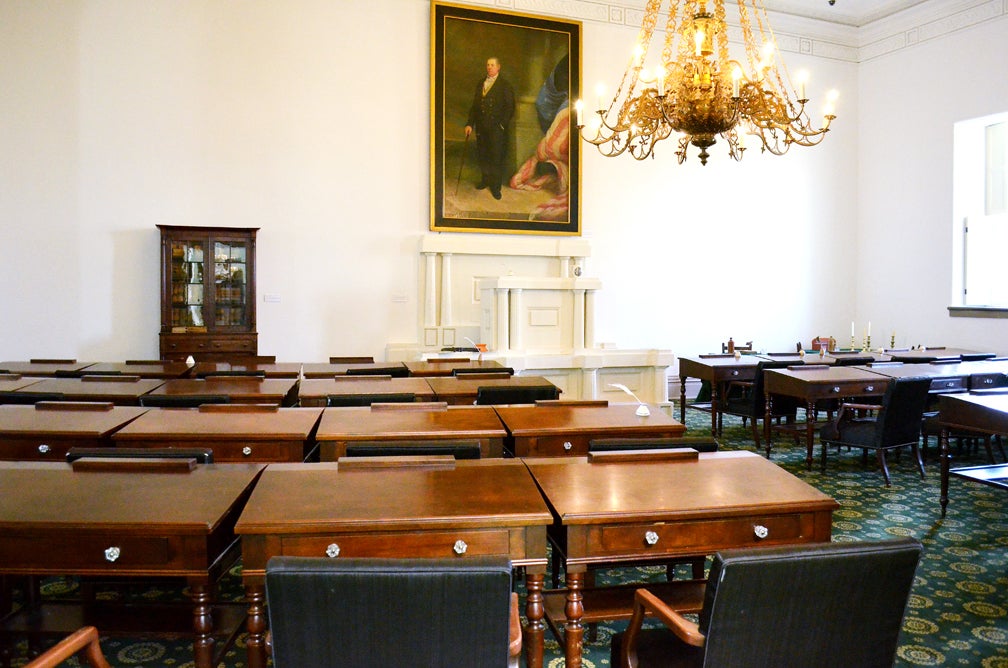Coming upon a bobcat, a poisonous snake or a 650 pound bear while on a hike would most likely be scary for most. But, at the Salato Wildlife Education Center in western Franklin County, visitors can safely see these and many more animals native to Kentucky. A hidden gem, Salato is a wonderful place to spend time with family enjoying its exhibits and programs. There is also expansive acreage on the property to relax, fish, picnic and hike.
Driving along Sportsman’s Lane, visitors pass two stocked fishing lakes, gaggles of geese and shaded picnic tables before reaching the Salato Wildlife Education Center which houses more than 250 animals (40 different animal species).
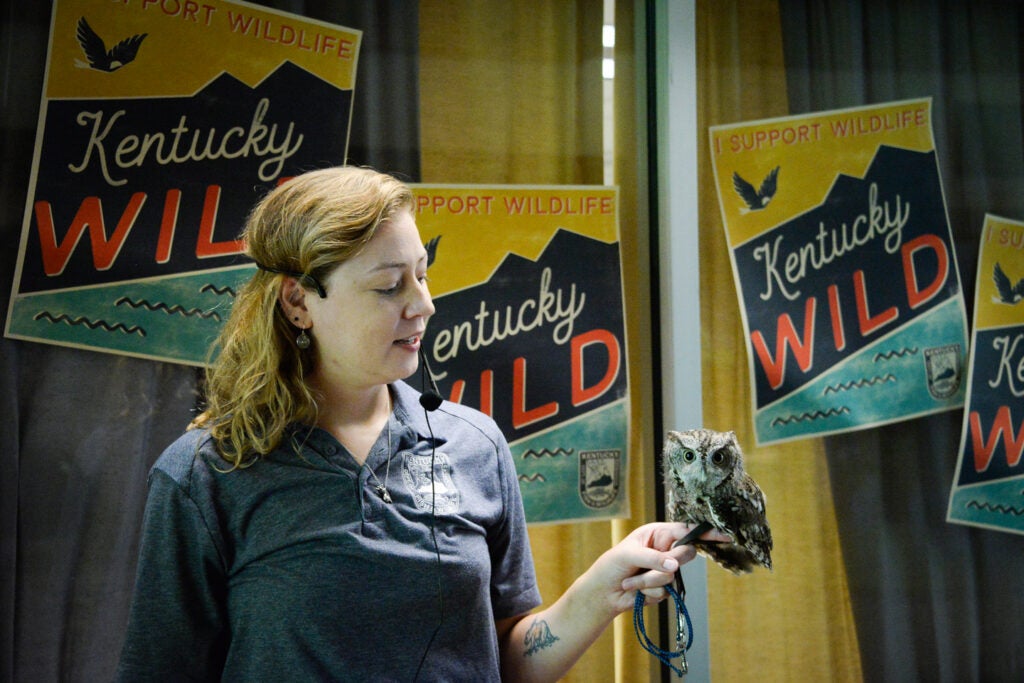
Jules Foster, Salato conservation education program coordinator, took FRANK. magazine on a tour around the center where we learned about some of our state’s native wildlife and their habitats.
Inside, we viewed the Snakes of Kentucky exhibit, various fish aquariums and even caught a glimpse of a rare Eastern hellbender, the largest salamander species in North America.
“Several of our animal species are rare or declining,” Jules explained. “This includes the alligator snapping turtle, the largest freshwater turtle in the U.S. For many visitors, Salato may be the only place they ever encounter these remarkable creatures.”
We stopped to listen to an animal care specialist with a tiny 15-year-old Eastern screech owl on her wrist speak to a group of children. She told them that this quarter of a pound bird has very large ears that can’t be seen and have fixed eyes that don’t move from side to side. It is miraculously able to rotate it’s head 270 degrees. Conservation Educator Cassidy Cornett met us at the outside amphitheater with a kestrel perched on her arm. At another open air exhibit, Cassidy introduced us to a great horned owl. While she was feeding the owl tidbits of mice as a snack, a family walked up. Cassidy told them about birds of prey as the owl sat patiently atop her arm surveying it’s surroundings.
Formerly a high school biology teacher, Cassidy has been at Salato for three seasons and is in charge of the raptor program.
“I love it here. One of my favorite things I do is spread the good word on how to help our native animals,” Cassidy said.
While exploring the exhibits along the paved paths, we saw the elk and bison enclosure, the bobwhite quail exhibit, the eagle exhibit, the living stream and many Kentucky native plants. Fisher Evans, a seasonal conservation educator, helped us locate the two bobcats in their enclosure. They were practically invisible, blending in with their environment.
The black bear, a visitor favorite, has been a Salato resident for 23 years. He came to the center as a six month old cub. Conservation Educator Nikki Nivison was planning the ingredients for the bear’s annual Fourth of July red, white and blue “very large” popsicle.
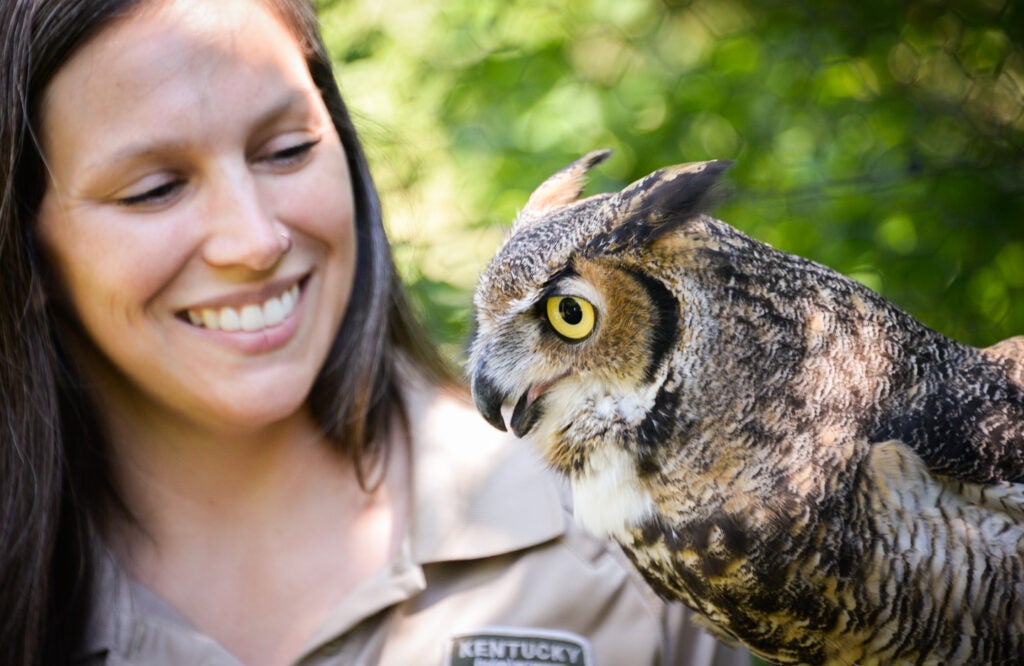
“He loves his popsicle and I usually sneak some crunchy Romaine lettuce in because that’s his favorite treat,” she said. “I love when people ask me questions and I can help them understand the importance of what Salato and the (Kentucky Department of Fish and Wildlife Resources) does.”
Visitors may view some of the animals being trained by Salato’s dedicated animal care specialists led by Brad Burge. His team works 365 days a year to maintain the health of the animals. Visitors can witness the bear playing with a ball in his pool or bobcats playing with items running through their enclosure on a zipline.
Recently, Corrie Joyce, lead animal trainer, trained the bear to participate in a blood draw, eliminating the need to anesthetize the bear.
“This achievement highlights the strong bonds of trust Corrie and Animal Care Specialist Alayna Coulter and Bart Riddle have built with the animals … All training is conducted with positive reinforcement, using food or play as motivation,” Jules related.
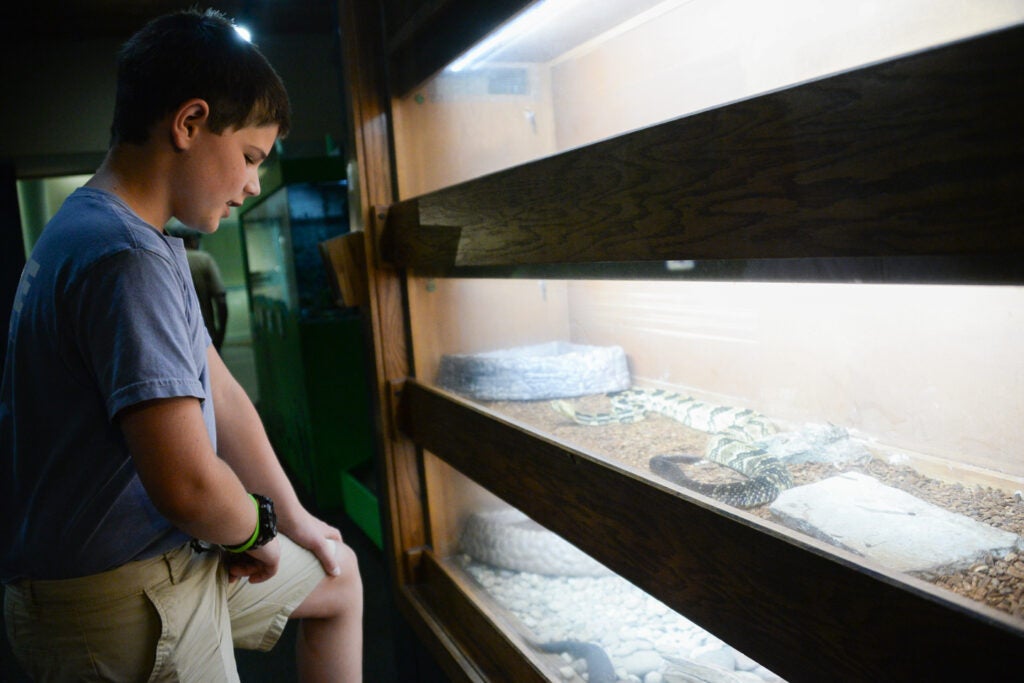
While we were there, groups of children visiting from a summer program moved from one exhibit to another, engaged and excited to see the animals. Several families meandered from place to place listening to the informal talks and enjoying the beautiful day.
Below are some highlights of FRANK. magazine’s interview with Jules Foster:
FRANK.: What is the mission and the goals of the center?
Jules: The Salato Wildlife Education Center serves as a unique gateway to Kentucky’s native wildlife. The center’s mission is to instill a sense of stewardship among Kentuckians for their wildlife and natural habitats.
It is our hope that visitors leave here inspired to do what they can to help conserve, protect and enhance wildlife resources. This mission aligns with the broader goals of the Kentucky Department of Fish and Wildlife Resources. Through various educational initiatives, Salato encourages visitors to actively participate in conservation efforts, whether by purchasing hunting or fishing licenses, engaging in ethical and safe hunting and fishing practices or supporting conservation efforts like the KYWild program or other related non-profit organizations, such as the Kentucky Fish and Wildlife Foundation, which supports Salato and the department’s three conservation summer camps across the state.
In addition to these efforts, Salato provides practical education on wildlife conservation principles, such as keeping wildlife wild by not removing baby wildlife from their habitat or adhering to “leave no trace” principles while hiking. The center also promotes outdoor activities like hunting, fishing, trapping, boating and wildlife viewing, inspiring visitors of all ages to take meaningful action toward preserving the natural world. Encouraging people to engage in these activities is crucial because those who actively participate in outdoor activities are much more likely to develop a deeper care and commitment to conserving and protecting the natural world.
FRANK.: What programs, activities and events do you offer for children?
Jules: I think one of the reasons we are a top destination for families (approximately 50,000 visitors a year) is a strong emphasis on engagement. Our conservation educators and animal care staff offer daily talks, enrichment programs and training sessions throughout the center. These programs, while geared toward young audiences, are suitable for all ages and highlight diverse conservation topics and species.
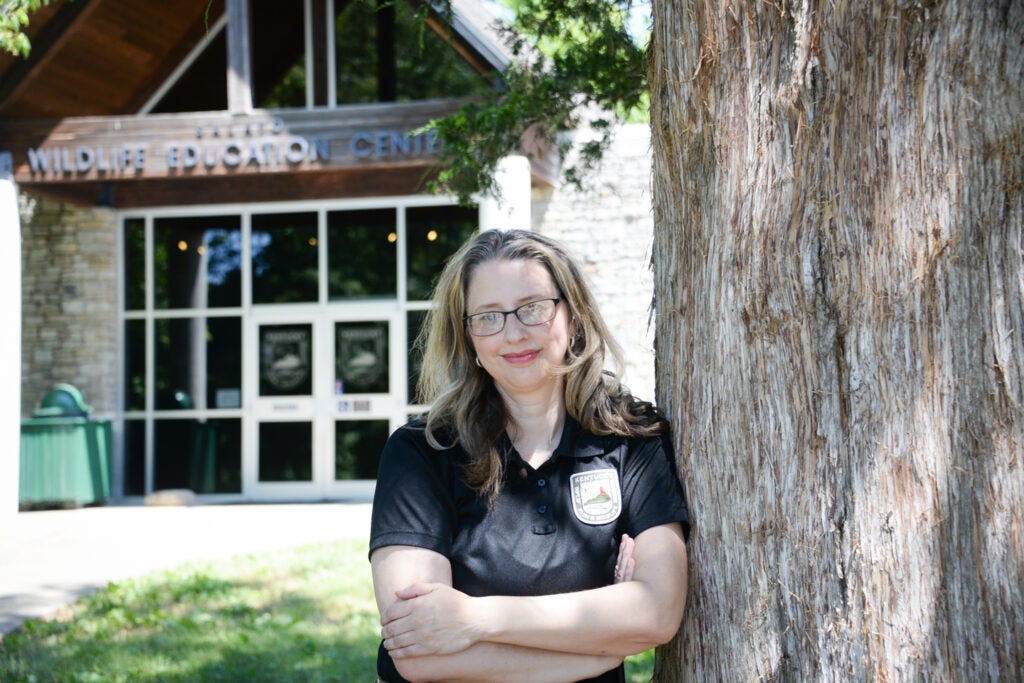
A favorite location for our programs is the outdoor amphitheater. Visitors can comfortably enjoy special presentations featuring our resident animals. Additionally, our educators are regularly available for informal animal encounters and are often stationed around the center to answer questions or let visitors touch educational props like furs and animal skulls. To plan a visit and explore the full range of activities, browse the center’s online activities calendar.
Enjoy free access to the property’s two fishing lakes, hiking trails and open-air picnic tables. Covered shelters can be rented online and if not reserved, are available on a first-come, first-served basis.
The campus recently added a new archery range with 11 shooting lanes and a raised platform, catering to both novice and experienced archers. The fishing lakes are part of the Fishing in Neighborhoods (FINs) program, featuring generous stockings of fish, and an excellent spot for beginners to learn to catch rainbow trout, bluegill, channel catfish and largemouth bass.
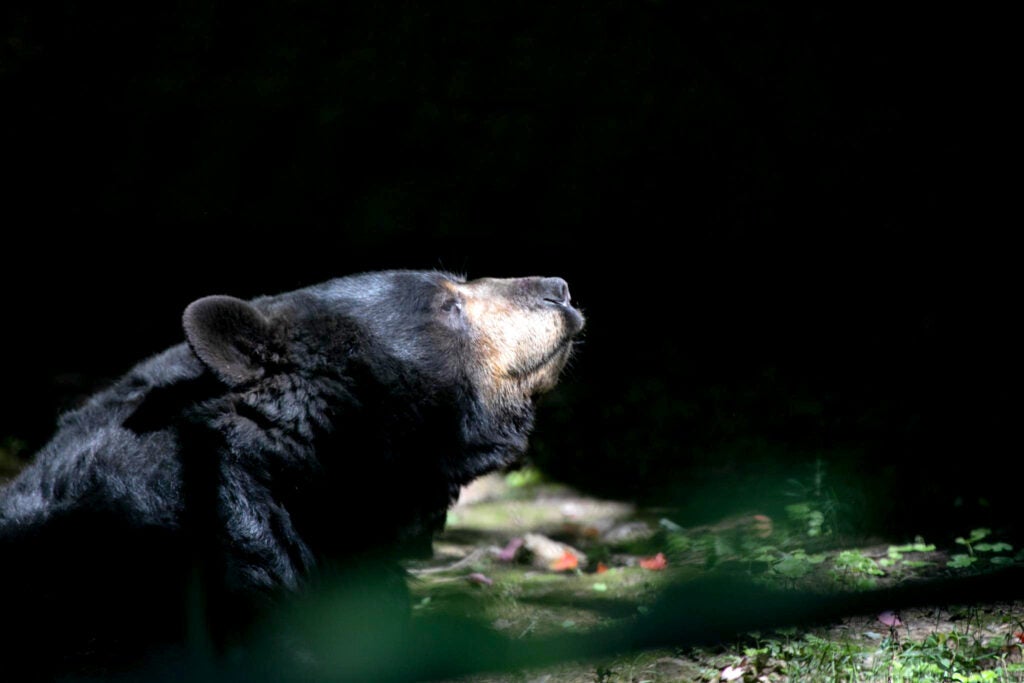
Admission to Salato Wildlife Education Center is $5 for adults, $3 for youths ages 5-17. Children 4 and under are free with an accompanying adult. Admission may be purchased at the door or online up to 31 days in advance. Salato is open seasonally from mid-March to late November, welcoming visitors Tuesday through Saturday, 9 a.m. to 4 p.m. Salato is closed on Sundays, Mondays and state holidays. Check the website for information on annual memberships.
Upcoming free event
National Hunting and Fishing Day will be held on Sept. 28 to celebrate hunting, fishing and the Great Outdoors with free admission. In its 52nd year, one of the main goals of National Hunting and Fishing Day is to recruit new hunters and anglers by encouraging participation and raising public awareness about the connection between hunting, angling and conservation.
Activities include opportunities to try basic archery, the Laporte archery system, kids casting activities, as well as engaging talks, demonstrations and informational booths. For more information search “Salato” at fw.ky.gov or contact the Salato Center at 502-564-7863.
